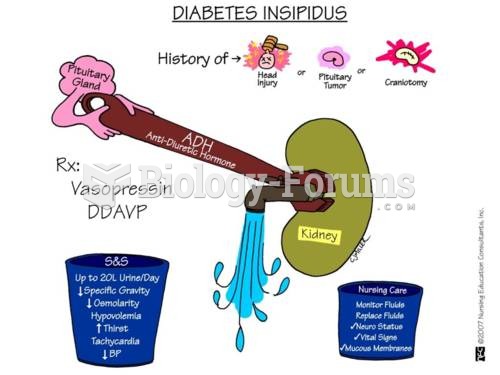|
|
|
More than 34,000 trademarked medication names and more than 10,000 generic medication names are in use in the United States.
Asthma attacks and symptoms usually get started by specific triggers (such as viruses, allergies, gases, and air particles). You should talk to your doctor about these triggers and find ways to avoid or get rid of them.
About 80% of major fungal systemic infections are due to Candida albicans. Another form, Candida peritonitis, occurs most often in postoperative patients. A rare disease, Candida meningitis, may follow leukemia, kidney transplant, other immunosuppressed factors, or when suffering from Candida septicemia.
Eat fiber! A diet high in fiber can help lower cholesterol levels by as much as 10%.
On average, someone in the United States has a stroke about every 40 seconds. This is about 795,000 people per year.







